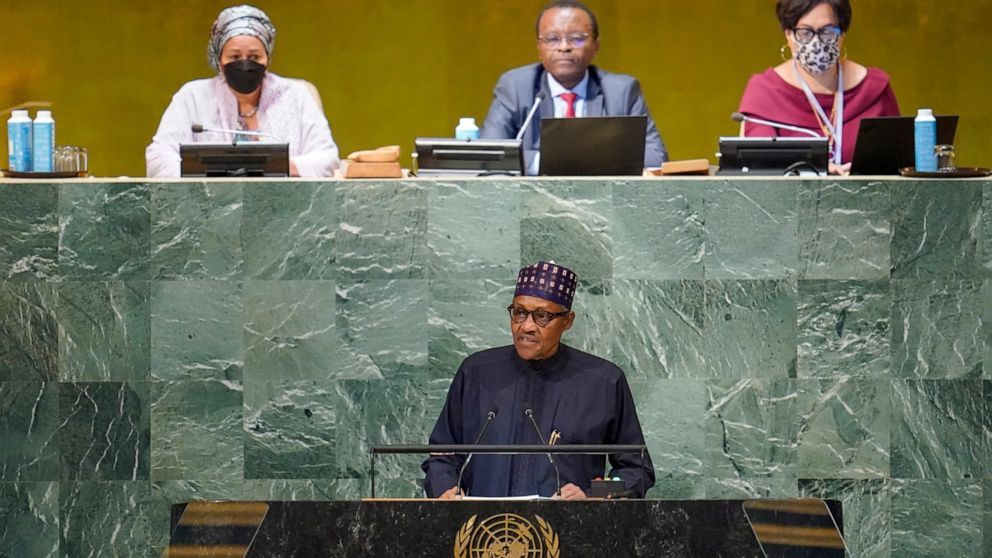There are no products in your shopping cart.
| 0 Items | £0.00 |


PRESIDENT Muhammadu Buhari used his last speech to the United Nations General Assembly yesterday to reassure the rest of the world that Nigeria will conduct free and fair elections in 2023.
In February next year, President Buhari will stand down after eight years in office and elections will gold to find his successor. Yesterday, President Buhari gave what was his valedictory address in New York, in which he criticised fellow African leaders who extend term limits to cling to power, saying this was having a corrosive effect in democracy across the continent.
President Buhari said: "We believe in the sanctity of constitutional term limits and we have steadfastly adhered to it in Nigeria. We have seen the corrosive impact on values when leaders elsewhere seek to change the rules to stay on in power.
"As president, I have set the goal that one of the enduring legacies I would like to leave is to entrench a process of free, fair and transparent and credible elections through which Nigerians elect leaders of their choice. The guiding principle of this extraordinary institution is the promotion of peace and security, development and human rights.
"We are now more severely tested by these enduring and new global challenges, paramount among which are conflicts increasingly being driven by non-state actors, proliferation of small arms and light weapons, terrorism, violent extremism, malignant use of technology, climate change, irregular migration and disparities in opportunities for improved standards of living. Despite the challenging international environment, the United Nations has proved that it can be strong when the will of its members is harnessed for positive collective action.
"Latest in a chain of events challenging these principles is the Ukraine conflict which has already created strains that are perhaps unprecedented for a generation. Such a conflict will have adverse consequences for us all, hindering our capacity to work together to resolve conflicts elsewhere, especially in Africa, the Middle East and Asia.
Indeed, the ongoing war in Ukraine is making it more difficult to tackle the perennial issues that feature each year in the deliberations of this assembly, such as nuclear disarmament, the right of the Rohingya refugees to return to their homes in Myanmar and the Palestinians’ legitimate aspirations for statehood and reduction of inequalities within and amongst nations. The danger of escalation of the war in Ukraine further justifies Nigeria’s resolute calls for a nuclear-free world and a universal Arms Trade Treaty, which are also necessary measures to prevent global human disasters.
"I remain firmly convinced that the challenges that have come so sharply into focus in recent years and months emphasise the call by Nigeria and many other member-states for the reform of the Security Council and other United Nations agencies. We need more effective and representative structures to meet today’s demands that have since outgrown a system designed for the very different world that prevailed at its foundation in 1945.
"Mr President, this is the first meeting we are having here in New York without the restrictions that characterised the last three years. I am happy to note that in Nigeria, our healthcare agencies were able to form effective local management and engaged international partnerships with multinational initiatives like Covax and private groups like the Bill and Melinda Gates Foundation."